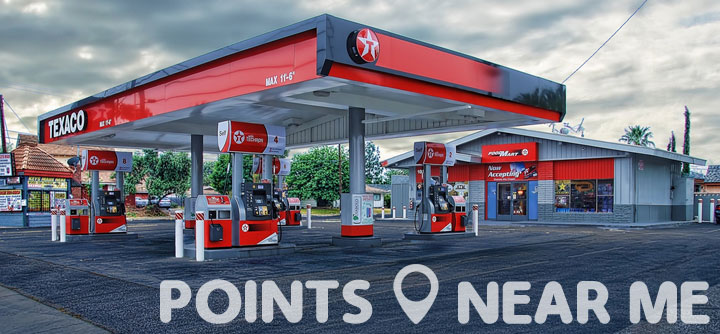BJ’s Near Me Gas: This seemingly simple search query reveals a complex interplay of location data, business information, and user intent. Understanding the nuances behind this phrase is crucial for developers building location-based services and for businesses aiming to reach potential customers searching for nearby gas stations. The query could refer to a specific gas station chain, “BJ’s,” or it might simply be a misspelling or a broader search for any gas station in the user’s vicinity.
This investigation explores the technological and logistical challenges involved in accurately and efficiently responding to such a request.
The core challenge lies in interpreting the user’s intent, accurately identifying their location, and then efficiently retrieving and displaying relevant information from a multitude of data sources. This includes not only the location of gas stations but also critical details like current gas prices, operating hours, and even customer reviews. Accuracy and speed are paramount, as users expect immediate and reliable results when searching for essential services like fuel.
Understanding User Search Intent Behind “BJ’s Near Me Gas”

Source: locationsnearme.net
The search query “BJ’s near me gas” reveals a user’s immediate need for gasoline at a BJ’s Wholesale Club location. However, the simplicity of the phrase masks several potential interpretations and underlying motivations.
Interpretations of the Search Term
The search term can be interpreted in several ways. The user might be specifically looking for BJ’s gas prices, comparing them to other stations, seeking the nearest BJ’s with a gas station, or needing directions to the nearest BJ’s with fuel. The ambiguity stems from the implicit assumption that BJ’s offers gas, which is not always the case for every location.
User Scenarios and Motivations
- A BJ’s member on a road trip, needing to refuel quickly and conveniently.
- A price-conscious shopper comparing gas prices before filling up their tank.
- A driver unfamiliar with the area, needing directions to the closest BJ’s gas station.
- Someone planning a shopping trip to BJ’s and wants to combine gas purchase with their shopping.
Relevant Business Types
The search is primarily relevant to BJ’s Wholesale Clubs with gas stations. However, the system should also consider other nearby gas stations as alternative options, particularly if no BJ’s with gas is found within a reasonable radius.
Geographic Targeting and Location Data: Bj’s Near Me Gas
Accurately identifying the user’s location is crucial for providing relevant results to the “BJ’s near me gas” search. This requires a robust system that leverages multiple data points to ensure precision and handle potential ambiguities.
Location Identification System
The system should utilize IP address geolocation, GPS data from mobile devices, and user-provided location information (if available) to pinpoint the user’s location. A combination of these methods improves accuracy and reliability.
Proximity-Based Result Prioritization
Results should be ranked based on their distance from the user’s identified location. A weighted algorithm, considering factors like driving distance and traffic conditions, can optimize result order.
Factors Influencing Location Accuracy
- IP address accuracy (varies depending on the provider and user’s network).
- GPS signal strength and availability.
- User-provided location accuracy (potential for manual input errors).
- Dynamic IP addresses (especially for mobile users).
Handling Ambiguous Location Information
The system should handle instances where the user’s location is unclear or imprecise. This could involve prompting the user for clarification, using broader search parameters, or presenting results covering a larger area.
Business Information and Data Sources
Accurate and up-to-date business information is critical for providing useful search results. Multiple data sources must be integrated, and data verification methods are essential.
Data Sources for Gas Services
- BJ’s Wholesale Club official website and APIs (for locations and gas prices).
- Third-party data providers specializing in business information (e.g., Yelp, Google My Business).
- Crowdsourced data platforms (user-submitted gas prices and reviews).
Data Verification Methods
Data verification involves comparing information from multiple sources, checking for consistency, and flagging discrepancies for manual review. Regular updates from official sources are essential for maintaining data currency.
Finding the nearest BJ’s gas station can be tricky, especially for those new to an area. For those relocating to Phoenix, securing employment quickly is a priority; check out the available positions listed on phoenix craigslist jobs to find work and then easily locate the closest BJ’s gas station for your fuel needs once settled. Knowing your location will make finding the nearest BJ’s gas station simple.
Integrating Real-Time Information
Real-time gas price updates are vital. The system should integrate data feeds from BJ’s or other providers to reflect the most current prices.
Handling Data Inconsistencies

Source: pointsnearme.com
When inconsistencies arise, the system should prioritize data from trusted sources. Manual review and correction might be necessary for persistent discrepancies.
Result Presentation and User Interface Design
The user interface should present information clearly and efficiently, even with a large number of search results. Visual elements should enhance usability.
Search Result Table
| Business Name | Address | Distance | Gas Price (Regular) |
|---|---|---|---|
| BJ’s Wholesale Club | 123 Main St, Anytown, CA | 2.5 miles | $3.99/gal |
| BJ’s Wholesale Club | 456 Oak Ave, Anytown, CA | 5.1 miles | $4.05/gal |
| Other Gas Station | 789 Pine Ln, Anytown, CA | 1.8 miles | $4.10/gal |
User Interface Design
The interface should feature a clean layout, clear headings, and easy-to-read fonts. A map integration would visually display results and their locations.
Handling Large Result Sets
Pagination, filtering options (by price, distance, etc.), and efficient data loading techniques are essential for handling large result sets.
Visual Elements
Visual cues such as distance indicators, price comparisons, and map markers enhance the user experience and make information easily digestible.
Handling Ambiguity and Misspellings
The system must be robust enough to handle variations in spelling and interpretations of the search query.
Handling Misspellings
Implementing a spell-checking algorithm and suggesting corrections for common misspellings of “BJ’s” or related terms improves user experience.
Disambiguating Multiple Interpretations
The system should prioritize results based on the most likely interpretation of “BJ’s”. If multiple interpretations are plausible, it should present options to the user for clarification.
Suggesting Alternative Search Terms
If the system detects an ambiguous or unusual search, it can suggest alternative search terms to refine the results.
Common Spelling Errors
- BJs
- B.J.’s
- BJs Gas
Addressing Potential Safety Concerns
Providing location-based information requires careful consideration of user privacy and safety.
Safety Risks and Privacy Protection
Sharing precise location data raises privacy concerns. The system should minimize the disclosure of sensitive information, using anonymization techniques where possible and obtaining explicit user consent.
Mitigating Risks and Protecting Privacy, Bj’s near me gas
Data encryption, secure storage, and adherence to privacy regulations (like GDPR and CCPA) are crucial. Users should have control over their data and the ability to opt out of location tracking.
Displaying Sensitive Business Information
Business information should be presented responsibly. Avoid displaying unnecessary details that could compromise security. Information should be updated regularly to maintain accuracy.
Ensuring Data Accuracy and Reliability
Rigorous data validation and verification processes are essential to minimize safety issues stemming from inaccurate or outdated information. Regular audits of data sources and processes are recommended.
Summary
Successfully delivering accurate and timely results for searches like “BJ’s Near Me Gas” requires a sophisticated blend of location-based services, data aggregation, and user interface design. Addressing the ambiguities inherent in the query, ensuring data accuracy, and prioritizing user privacy are all critical considerations. The development of robust systems capable of handling these challenges is vital for providing a seamless and reliable user experience in the increasingly location-dependent digital landscape.
